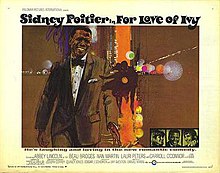
Paul Laurence Dunbar was an American poet, novelist, and short story writer of the late 19th and early 20th centuries. Born in Dayton, Ohio, to parents who had been enslaved in Kentucky before the American Civil War, Dunbar began writing stories and verse when he was a child. He published his first poems at the age of 16 in a Dayton newspaper, and served as president of his high school's literary society.

To Sir, with Love is a 1967 British drama film that deals with social and racial issues in an inner city school. It stars Sidney Poitier and features Christian Roberts, Judy Geeson, Suzy Kendall, Patricia Routledge and singer Lulu making her film debut. James Clavell directed from his own screenplay, which was based on E. R. Braithwaite's 1959 autobiographical novel of the same name.

Virginia Cathryn "Gena" Rowlands was an American actress, whose career in film, stage, and television spanned nearly seven decades. She was a four-time Emmy Award and two-time Golden Globe winner, was twice nominated for the Academy Award for Best Actress.

Roots is a 1977 American television miniseries based on Alex Haley's 1976 novel Roots: The Saga of an American Family, set during and after the era of enslavement in the United States. The series first aired on ABC in January 1977 over eight consecutive nights.

Anna Marie Wooldridge, known professionally as Abbey Lincoln, was an American jazz vocalist and songwriter. She was a civil rights activist beginning in the 1960s. Lincoln made a career out of delivering deeply felt presentations of standards, as well as writing and singing her own material.
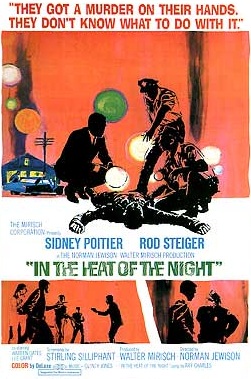
In the Heat of the Night is a 1967 American mystery drama film directed by Norman Jewison, produced by Walter Mirisch, and starring Sidney Poitier and Rod Steiger. It tells the story of Virgil Tibbs (Poitier), a Black police detective from Philadelphia, who becomes embroiled in a murder investigation in a small town in Mississippi. The film was adapted by Stirling Silliphant from John Ball's 1965 novel of the same name.

They Call Me Mister Tibbs! is a 1970 American DeLuxe Color crime drama film directed by Gordon Douglas. The second installment in a trilogy, the release was preceded by In the Heat of the Night (1967) and followed by The Organization (1971). The film's title was taken from a line in the first film.
BobRussell was an American songwriter born in Passaic, New Jersey.

Uptown Saturday Night is a 1974 American action comedy and crime comedy film, written by Richard Wesley and directed by and starring Sidney Poitier, with Bill Cosby and Harry Belafonte co-starring. Cosby and Poitier teamed up again for Let's Do It Again (1975) and A Piece of the Action (1977). Although Cosby's and Poitier's characters have different names in each film, the three films are considered a trilogy. Uptown Saturday Night premiered on June 15, 1974, at the Criterion Theatre in New York and opened to positive reviews.
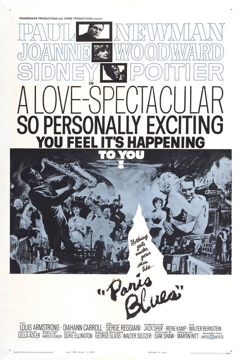
Paris Blues is a 1961 American musical romantic drama film directed by Martin Ritt, starring Sidney Poitier as expatriate jazz saxophonist Eddie Cook, and Paul Newman as trombone-playing Ram Bowen. The two men romance two vacationing American tourists, Connie Lampson and Lillian Corning. The film also deals with American racism of the time contrasted with Paris's open acceptance of black people. The film was based on the 1957 novel of the same name by Harold Flender.
The Marian Anderson Award was originally established in 1943 by African American singer Marian Anderson, after she was awarded The Philadelphia Award in 1940. Anderson used the award money to establish a singing competition to help support young singers; recipients of which include Camilla Williams, Nathaniel Dickerson (1944), Louise Parker (1944), Eudice Mesibov (1946), Mattiwilda Dobbs (1947), Rawn Spearman (1949), Georgia Laster (1951), Betty Allen (1952), Gloria Davy (1952), Judith Raskin, Shirlee Emmons (1953), Miriam Holman (1954), Willis Patterson (1956), Shirley Verrett (1957), Joanna Simon (1962), Billie Lynn Daniel (1963), and Joyce Mathis (1967). Eventually, the prize fund ran out of money and it was disbanded. Florence Quivar was the last recipient of this earlier award in 1976.

The Slender Thread is a 1965 American drama film starring Anne Bancroft and Sidney Poitier. It was the first feature-length film directed by future Oscar-winning director, producer and actor Sydney Pollack.
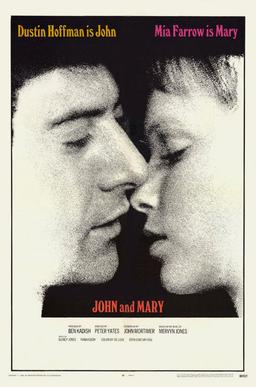
John and Mary is a 1969 American romantic drama film directed by Peter Yates, and starring Dustin Hoffman and Mia Farrow in the title roles. It was the film debut of Tyne Daly. The screenplay was adapted by John Mortimer from the 1966 Mervyn Jones novel.
Thomas Picardo Jr., known professionally as Tommy West, was an American record producer and singer-songwriter.
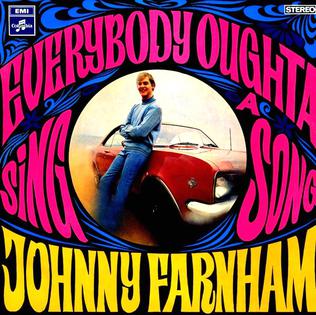
Everybody Oughta Sing A Song is the second solo studio album by Australian pop singer John Farnham and was released on EMI Records in November 1968. Its first single, released in July, was the double A-sided, "Jamie"/"I Don't Want To Love You", which peaked at No. 8 on the Go-Set National Singles Charts. The second single, "Rose Coloured Glasses" was released in October and peaked at No. 16. Writers on the album included Hans Poulsen, Neil Diamond and Quincy Jones. The album was re-released in 1974 with a different cover, it shows Farnham performing live on stage, whereas the initial 1968 release had him leaning against a Holden Monaro.

The Lost Man is a 1969 American crime film, written and directed by Robert Alan Aurthur, loosely based on British author F.L. Green's 1945 novel Odd Man Out, which was previously made into a 1947 film directed by Carol Reed and starring James Mason.
The Governors Awards presentation is an annual award ceremony hosted by the Academy of Motion Picture Arts and Sciences (AMPAS), at the Grand Ballroom of the Hollywood and Highland Center, in the Hollywood district of Los Angeles, California. Three awards that signify lifetime achievement within the film industry – the Academy Honorary Award, the Jean Hersholt Humanitarian Award, and the Irving G. Thalberg Memorial Award – are presented at this ceremony. The first Governors Awards ceremony was held on November 14, 2009. Prior to this, these three awards were formally presented during the main Academy Awards ceremony, which now conducts a short mention and appearance of the awards recipients after displaying a montage of the Governors Awards presentation. In the years since, the awards have gained prominence as a major red-carpet destination and industry event.
Martin "Marty" Baum was an American talent agent known for his work at the Creative Artists Agency (CAA), including the first head of the agency's motion picture department. During his career, which spanned from the 1940s until 2010, his client list at CAA and other agencies included Bette Davis, Jack Lemmon, Bobby Darin, Bo Derek, Richard Attenborough, Red Buttons, Maggie Smith and Rock Hudson. Baum was also the President of ABC Pictures, the film division of the American Broadcasting Company (ABC), from 1968 until 1971.
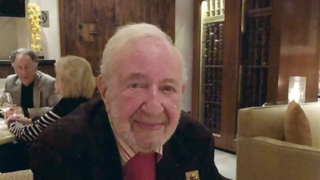
Jay Weston was an American film producer and restaurant critic. He is known for producing Billy Wilder's final comedy, Buddy Buddy, and the Academy Award-nominated Lady Sings the Blues, as well as for his popular restaurant newsletter that focused on the Los Angeles dining scene. He was a regular contributor to the Huffington Post.
The 4th Blockbuster Entertainment Awards were held on March 10, 1998 at the Pantages Theater in Los Angeles. Below is a complete list of nominees and winners. Winners are highlighted in bold.
